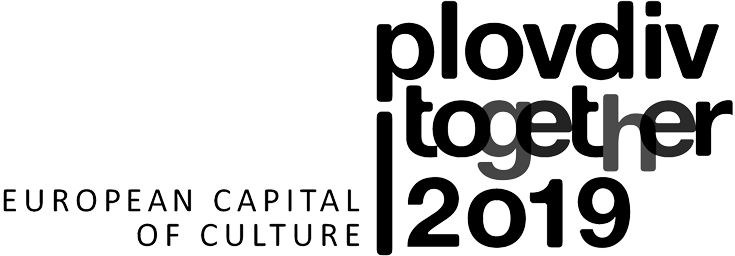“Endpunkt Europa” (excerpt) – Felix Kiessling – 2017
Mnemosyne is a ten-year, pan-European and civic project. It is a new way of considering exhibitions, memory policy and culture at a time of the greatest threat since the Second World War. Initially launched 3 years ago as an exhibition project, Mnemosyne has now become a nexus for the most diverse protagonists (universities, schools, [technology] companies, human rights NGOs and museums among others).
The project derives its name from the Greek goddess of memory, Mnemosyne, from which the word memory also stems. The basic assumption of Mnemosyne. In search of the European identity is that without (shared) memory, no (European) identity can be formed. This applies to each individual, as well as to collectives, states and unions. Just as talking about oneself reveals a person‘s identity, communities, too, create their identity by means of narratives. This occurs through memories with a national, or, in the particular case of Europe, a pan-European reference being passed on. Europe lacks these broad, common, positive narratives.
The multimedia exhibition, research and mediation project presented here is embarking on a search for just those ideas and stories of a common European self-image, which recognizes the differences of the various national states and vaults over them. It would like to invite people to identify with Europe and joyfully exclaim: Yes, I’m a European! Yes, I can gladly identify with these values and with this community! In this sense, the Mnemosyne project follows a historical-political aim.
Jo Leinen
Europe lives on its rich culture and its long and eventful history. Creating an awareness of this memory and also clarifying the cross-border nature of European culture, is a central task for many levels of politics and society. I therefore greatly welcome the fact that, with the project Mnemosyne. In Search of the European Identity, a very fundamental approach has been chosen to establish a starting point for this European cultural and historical narrative. As President of the International European Movement (EMI), a civil society organization, which acts across borders, bringing nations together, I sincerely wish this project all the success in the world.
Doris Pack
The European identity is nothing abstract, but rather a vivid interaction and synthesis of both the cultural and common historical experiences of all European states. European cultural policy should therefore create opportunities for all identities to express themselves. Only thus do mutual understanding and respect arise. European culture‘s significance lies in its variety; this diversity, which constitutes Europe, is reflected in regional and national characteristics in music, art, literature and languages. It is also reflected in our handling of our respective histories. The multimedia project Mnemosyne. In Search of the European Identity can make this tangible! We need this reflection on Europe‘s soul now more than ever before.
Erhard Busek
Searching for identity is nowadays more of a European task than ever before! In this respect, all the regions with their different (hi)stories, along with the continent‘s commonality, have contributions to make. First and foremost, it is a matter of finding Europe‘s role for itself, as well as in its global responsibility. Personally, I consider times of crisis offer us a chance, for a crisis involves assessing and deciding. This is best done, however, by confronting the object of our desire – Europe – in an appropriate way. Support of any kind is vital, for it is quite simply a matter of the part of the world with which we have been entrusted.
Aleida and Jan Assmann
In Europe, history and a vision of the future are very closely linked. Europe‘s promise revolves around two decisive transformations:
1. From war to peace – from European history we learn that erstwhile mortal enemies become peacefully coexisting and closely cooperating neighbours.
2. From coercion to freedom – from European history we learn that dictatorships can become democracies.
In order to safeguard these values, the EU‘s indifferent phase must be followed by a phase of revival, emotion, renewal and engagement. The project Mnemosyne. In Search of the European Identity is heading in precisely this direction. We therefore support it wholeheartedly.
Helga Trüpel
As a parliamentarian and Vice President of the Culture Committee in the European Parliament, I would hereby like to express my support for the project Mnemosyne. In Search of the European Identity. Mnemosyne wishes to strengthen a common European cultural consciousness and opens a new field of discussion regarding Europe‘s politics of remembrance. Without a clear conception of one‘s own past, without a common memory culture, Europe cannot possibly develop a common identity. Exploring this multifaceted and many-voiced past in a multimedia project seems to me more crucial than ever these days, when centrifugal powers are threatening the European freedom project.
Robert Wilson
On various occasions critics have described my work in the theater as "avant-garde". But what I am doing is not new: it is theme and variation; a time/space construction. There might not be a story or narrative, but the structure is classical. The avant-garde is always rediscovering the classics.
We learn about the nature of a society through the individual, and we learn about the nature of the individual from the work of art. Artists are the diaries and the records of our time.
If we lose our culture, we lose our memory.
IMPRESSUM
Bublitz GmbH (gemeinnützig)
Reuterstraße 29
12047 Berlin
www.bublitz.org
moderation@bublitz.org
T. +49 30 83031251
Geschäftsführer: Julian Malte Hatem Schindele (V.i.S.d.P.)
Amtsgericht Berlin Charlottenburg, HRB 1881163 B
Gestaltung: Caspar Reuss und Paul Rutrecht
Code: Timo Rychert (Chain-Reaction-Scroll-Konzept: David Liebermann)
Nachweis Video:
“Endpunkt Europa” (excerpt) – Felix Kiessling – 2017
Haftungsausschluss








